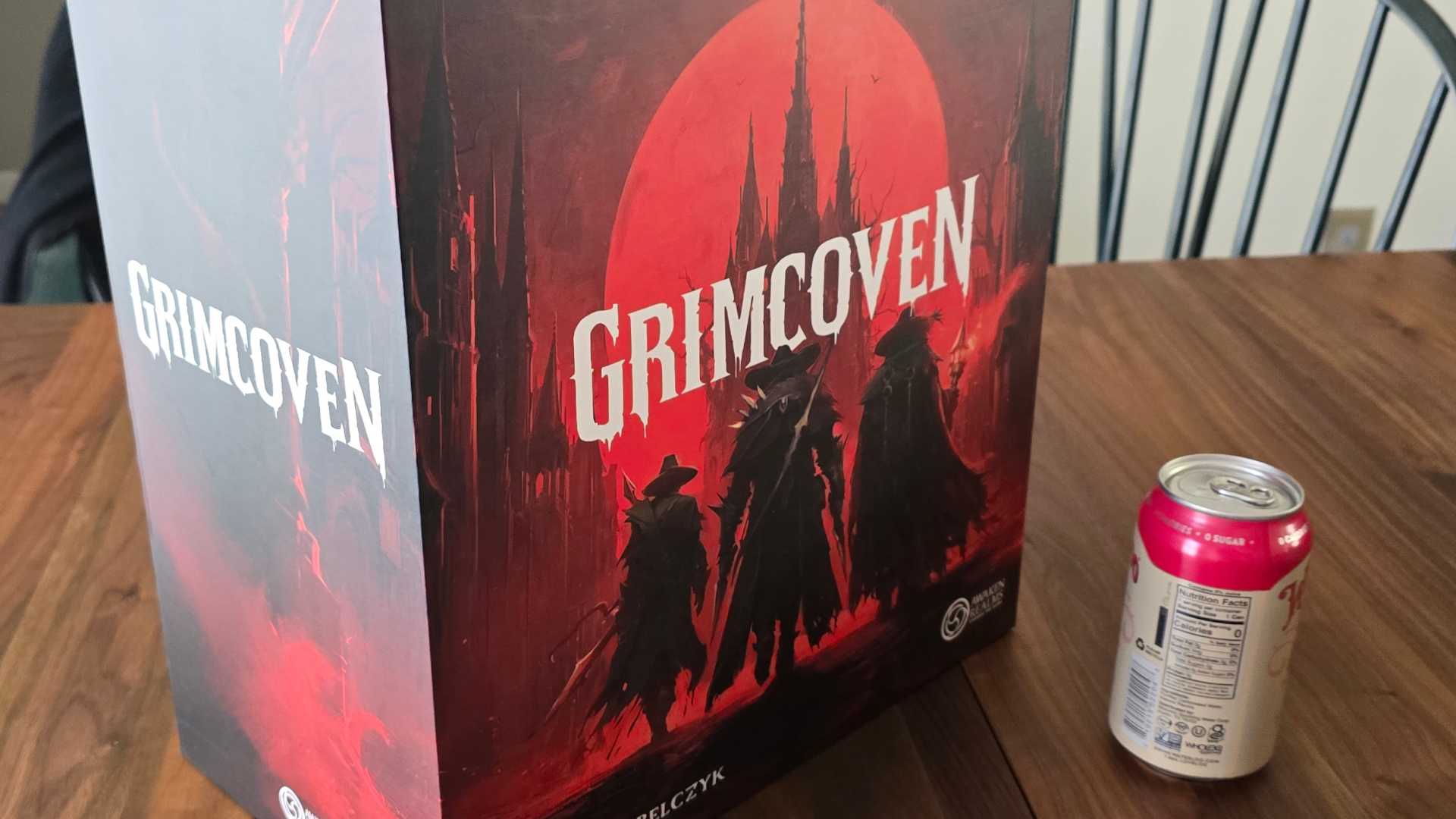Indie games that could only be pulled off by an indie
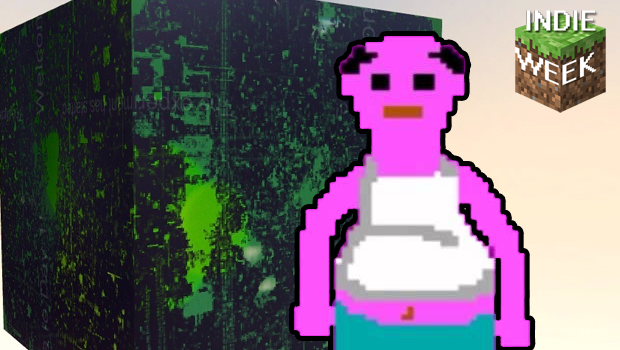
Digital snowflakes
Freedom. It's what every indie developer has at their fingertips, able to program and design whatever game they can imagine. Without stockholders' money, manager's deadlines, or gamer's expectations looming over their work, indies have the power to truly break out of the mold and deliver wholly unique projects to the world, often without a price of admission. Some things in the video game world can only be accomplished with million-dollar budgets and a publisher backing you up. But by that same token, some games could only be accomplished by an indie dev with an idea and a lot of passion for their work.
WARNING! Some of the magic of playing these games come from the experience of not quite knowing what awaits you. Though we've done our best to dance around the standout bits, we'll inevitably have to discuss the contents of the game to explain how it's such an indie indie. If you consider yourself a gaming purist, stop reading at the image headline, play the game in question, then move on to the next one. But if you need a little convincing, we're offering a taste of the extraordinary, unforeseeable wonders that await you.
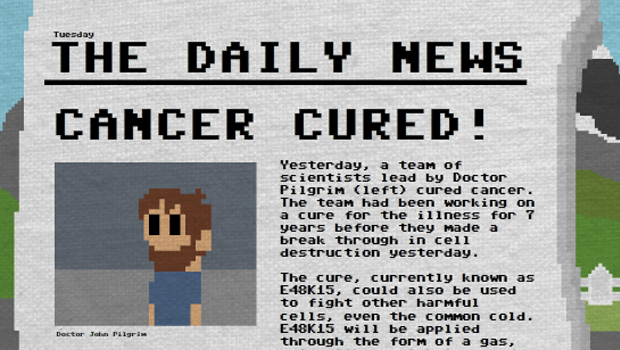
One Chance (a game you can only place once)
"In six days, every single living cell in the world will die. You have one chance to save the world." So begins One Chance, the title of which says it all: after you play it, there's no going back. You play as scientist John Pilgrim, who has just made a miraculous discovery: the cure for cancer. Unfortunately, said cure is actually a pathogen with the potency to end humanity. It's up to you whether you want to spend time with your wife and daughter, break free of all inhibitions, or toil away in the lab to search for a cure in the six days you have before the apocalypse. Your choices will lead to an ending that, for all intents and purposes, cannot be undone. Better make that one chance count.
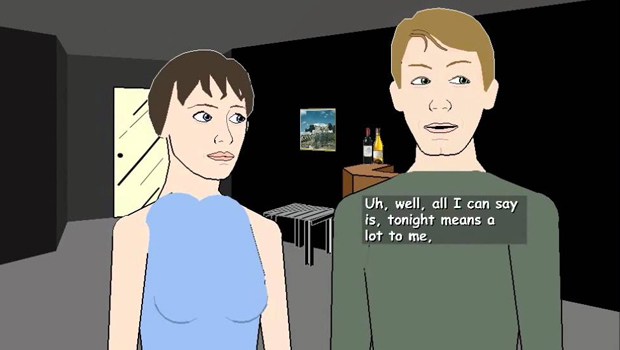
Faade (the game that responds to any input)
Faade's graphics are incredibly dated, the animations are stilted, and its first-person perspective is as rudimentary as it gets. And yet, it's one of the most convincing simulations of human drama ever made. It starts as a simple get-together with your friends Grace and Trip, a happily married couple whose relationship starts to slowly unravel as the night goes on. But what's incredible about Faade is the part you play in this spectacle, acting out anything that comes to mind and watching Grace and Trip react to your every input. Will you compliment Trip's taste in art? Will you passionately kiss Grace on the lips, mid-sentence, directly in front of her husband? Will you be instantaneously kicked out for saying "Melon?" It's entirely up to you.
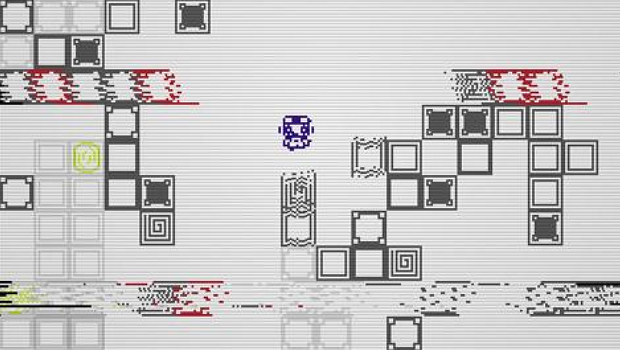
GlitchHiker (leaving your permanent mark on the game)
Watch it here (since you can no longer play it)
GlitchHiker may well be the only online game with a planned extinction. This single-screen platformer once appeared simple enough, as you controlled a dinky character who dashed around collecting coins and avoiding red blocks. The catch is that to play the game, you needed to be connected to an online server. Whenever you died, a life was deducted from the server's tally; pick up 100 coins, and a life would be added. As the permanent life counter on the server continued to deplete, GlitchHiker would become increasingly glitch, with graphical tearing and audio quirks popping up in droves. Within seven hours, the server's life count was at zero, and the game erased itself, never to be played again.
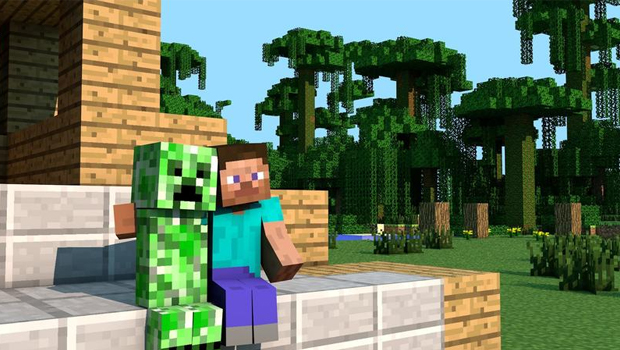
Minecraft (complete autonomy to play how you choose)
Mojang's mega-hit, open-world game has been praised non-stop since 2009, and will no doubt continue going strong well into the next decade. That's because it's the sandbox game to end all sandboxes--a completely open world driven by player creativity. Whether you want to try and survive in the randomly generated wilderness or construct titanic virtual structures in creative mode, Minecraft is what you make of it. Even if gathering, crafting, and building isn't really your bag, no gamer can deny the power of Minecraft's influence and the well of imagination it so radically tapped into.
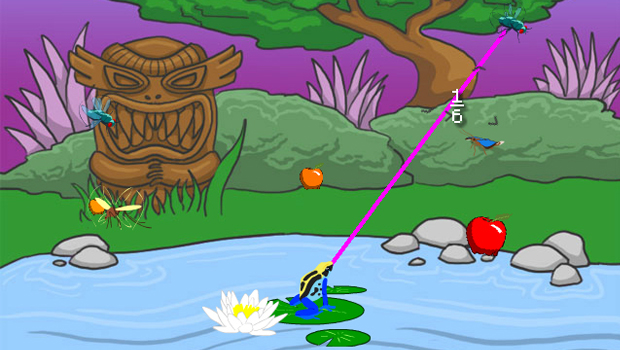
Frog Fractions (subversion in an edutainment game)
One wonders what thoughts raced through the mind of the first person who discovered the true depth of Frog Fractions. Here's a totally unassuming piece of edutainment, with simplistic graphics and an even simpler goal: lap up mathematical insects with your frog's ridiculously long tongue. The classic '90s computer game music and straightforward gameplay will lull you into a state of content calm. But the clues to something stranger are all there--the Indignity meter; curious upgrades like lock-on targeting; the unexplained currency of zorkmids. But nothing can prepare you for the bizarre sights that await beyond the confines of your comfortable lily pad
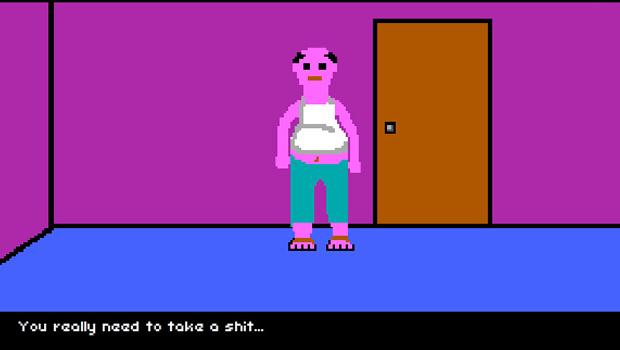
Don't Shit Your Pants (humorous survival horror)
Depending on who you ask, it would be preferable to simply die rather than defecate uncontrollably into your trousers. You must avoid such a grisly fate in this hilarious text adventure, which has an urgency that no quick-time event could ever replicate. The means to excreting your waste are limited only by your imagination, and half of the fun in Don't Shit Your Pants comes from the variety of ways you can, in fact, poop in your pants. Part cautionary tale, part fantasy fulfillment, this may be the only video game lets you crap yourself with impunity.

Curiosity - What's Inside the Cube? (thousands of players, only one winner)
Watch it here (since you can no longer play it)
Only a visionary auteur like Peter Molyneux would have the gall to charge money for a social experiment. Curiosity presents nothing more to the player than a gigantic cube, constructed from 326 layers of 69 billion little cubelets. Gameplay is as simple as tapping sides of this monolithic cube, removing a single cubelet as hundreds of your peers do the same. Piece by piece, layer by layer, the goal is to get to the center and collect the mysterious prize held within, where a single person will reap the rewards of hours upon hours of collaborative work. Thankfully, winner Bryan Henderson was kind enough to share his findings with the world.
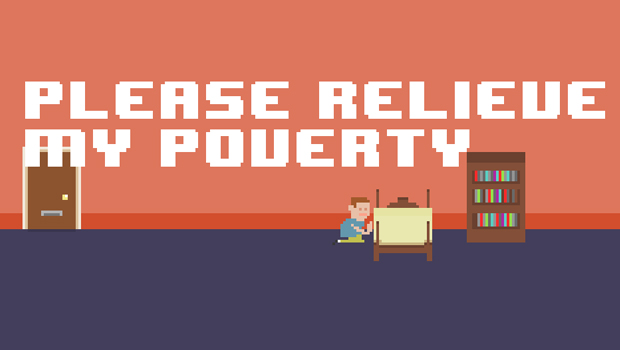
Good Fortune (a game where literally nothing happens)
There's a pixelated character on your screen. You can move him left and right, walking to and fro between the door and your bed. Your objective? Pray for good fortune. So you kneel next to your mattress, and pray to a higher power for your poverty to be replaced by fame and wealth. And you wait. And wait. And nothing happens. Good Fortune is more a message than a game, as you slowly dawn on a grim realization: What, exactly, is the point of praying? Does wishing for something bring it any closer to reality?
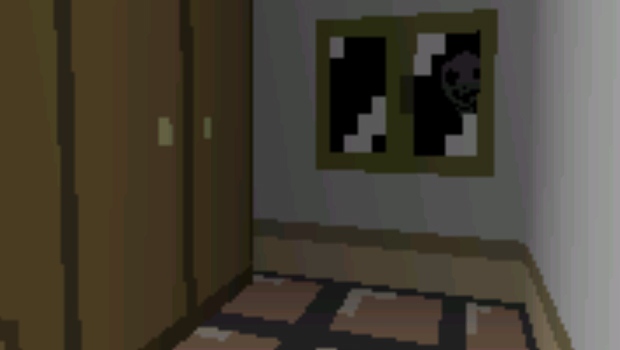
Imscared (breaking the fourth wall in terrifying ways)
Like most horror games, this one isn't for the faint of heart--but instead of frightening you with lifelike graphics or an endless parade of jumpscares, Imscared will make you afraid of your computer. Through some ingenious programming trickery, deciphering the puzzles of Imscared can actually take place outside the executable game, as cryptic .txt files and disturbing images begin popping up in the game's directory folder. Even after you think you've completed the nightmarish journey, you never quite know if the game will boot itself back up and throw you into a petrified panic.
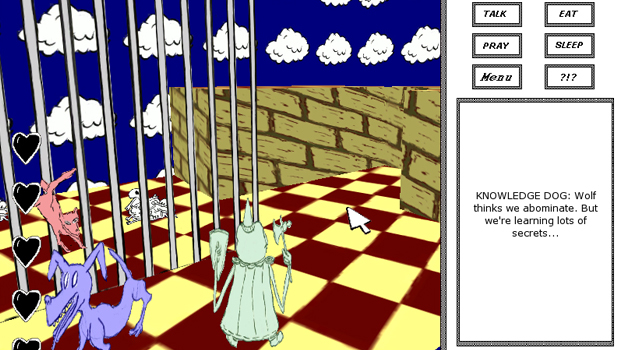
Goblet Grotto (endlessly assaulting the player with an incoherent language)
To the average gamer, Goblet Grotto will be all but unplayable. That's because, as you guide a gallant frog knight through a skewed 3D world, your ears will be beaten into submission by a droning, ceaseless noise. That honking sound you're hearing is an incredibly cryptic series of messages, delivered to you via iconographic runes that match Mayan hieroglyphs in terms of complexity. Your brain will struggle to process the blocks of English description text that pop up on screen, because your attention will be ripped away whenever you're given a new message. Will you be able to stay the course on your goblet-collecting quest, or will you be driven mad by this game's wildly experimental nature?
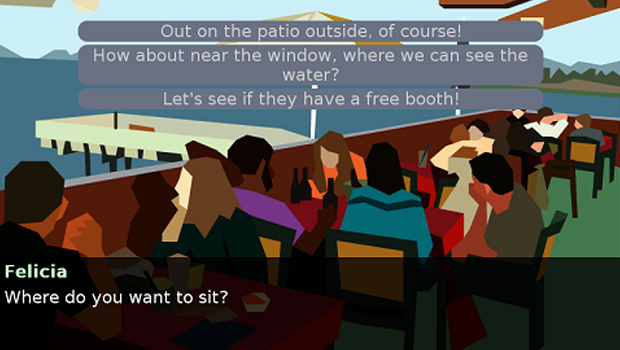
Save the Date! (a visual novel with astounding implications)
When you think of the visual novel genre, you might imagine a trite, anime-centric, possibly porny dating sim (though there are definitely some standouts even within that genre). But what you're probably not prepared for is a deep philosophical dialogue between you and a fictional character. Save the Date! seems positively pedestrian when you first start out--but stick with it, and you'll find yourself lost in thought, struggling to find your personal answers to questions you never even considered. It's the kind of narrative that only an indie could pull off, and of all the games on this list, Save the Date! is most worthy of dropping whatever you're doing and playing it right now.
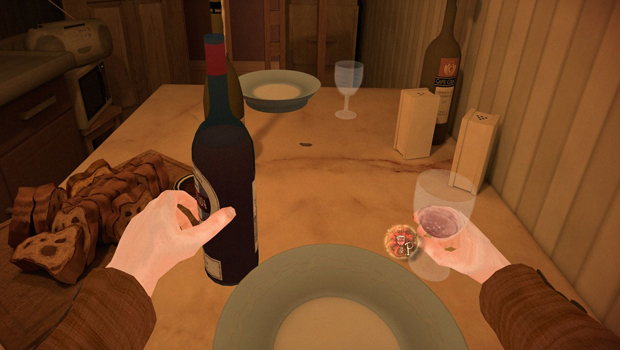
Dinner Date (fear of rejection turned into a game)
Ever been stood up before? If so, we're sorry--we've been there, and it sucks. But it also makes for an incredibly cerebral experience, as you sit alone, tormenting yourself with thoughts of betrayal and deception from your prospective date. That, in turn, can be the basis for a very affecting game, as demonstrated by Dinner Date. You are the subconscious of Julian Luxemburg, waiting patiently for your date to arrive and slowly spiraling into self-pity and anger with each passing minute of solitude. If video games are about sharing an experience with a virtual character, then Dinner Date succeeds at making you feel awful for Julian and his lonely existence.

And many more
These aren't the only concepts that could only work as an indie game--there's a thousand others (like The 4th Wall, above) just waiting for you to play them, and that number will only grow in time. Do you have a favorite game that could never exist as a commercial product? Share it in the comments, because we're always ready and willing to try the next experimental indie.
And if you're looking for more Indie Week content, check out 12 amazing indie games you've never played (by indie devs you love) and No budget, no rules: the 10 most original indie art styles.

Lucas Sullivan is the former US Managing Editor of GamesRadar+. Lucas spent seven years working for GR, starting as an Associate Editor in 2012 before climbing the ranks. He left us in 2019 to pursue a career path on the other side of the fence, joining 2K Games as a Global Content Manager. Lucas doesn't get to write about games like Borderlands and Mafia anymore, but he does get to help make and market them.
Weekly digests, tales from the communities you love, and more
You are now subscribed
Your newsletter sign-up was successful
Want to add more newsletters?

Every Friday
GamesRadar+
Your weekly update on everything you could ever want to know about the games you already love, games we know you're going to love in the near future, and tales from the communities that surround them.

Every Thursday
GTA 6 O'clock
Our special GTA 6 newsletter, with breaking news, insider info, and rumor analysis from the award-winning GTA 6 O'clock experts.

Every Friday
Knowledge
From the creators of Edge: A weekly videogame industry newsletter with analysis from expert writers, guidance from professionals, and insight into what's on the horizon.

Every Thursday
The Setup
Hardware nerds unite, sign up to our free tech newsletter for a weekly digest of the hottest new tech, the latest gadgets on the test bench, and much more.

Every Wednesday
Switch 2 Spotlight
Sign up to our new Switch 2 newsletter, where we bring you the latest talking points on Nintendo's new console each week, bring you up to date on the news, and recommend what games to play.

Every Saturday
The Watchlist
Subscribe for a weekly digest of the movie and TV news that matters, direct to your inbox. From first-look trailers, interviews, reviews and explainers, we've got you covered.

Once a month
SFX
Get sneak previews, exclusive competitions and details of special events each month!
